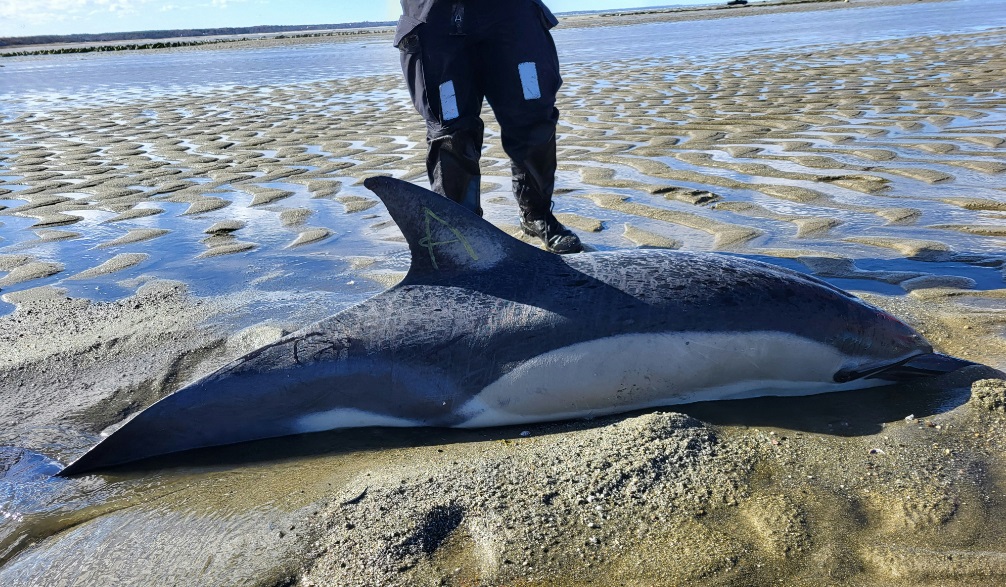Community
Wave of strandings leads to swift rescue of 10 dolphins across 5 Massachusetts towns and 8 beaches

Yarmouth Port, MA – A series of dolphin strandings reached five towns and a total of eight beaches along Cape Cod Saturday, triggering a complex rescue operation to save 10 marine mammals in distress.
The International Fund for Animal Welfare stated that they quickly mobilized its rescue team after the first call came to its 24/7 stranding hotline at 6:30 a.m. Saturday. In total, the team responded to eight stranding locations between Dennis and Wellfleet before noon, resulting in the rescue of 10 common dolphins. An additional four dolphins died prior to the team’s arrival, and two soon after.
“High winds, cold weather, challenging surf, and the large size of the animals all contributed to a strenuous response with obstacles at every turn,” said Kira Kasper, Biologist and Animal Rescue Responder at IFAW. “With multiple strandings at different locations, every moment counts.”
As IFAW’s rescue efforts began at Ellis Landing Beach in Brewster, reports of additional strandings emerged in other towns along Cape Cod’s coastline. By 8 a.m., two more common dolphins were found stranded at Sea Street Beach in Dennis, though neither survived. Within the hour, another dolphin was reported stranded at First Encounter Beach in Eastham, two more at Crowes Pasture in Dennis, four more at the Herring River Gut in Wellfleet, two at Mayo Beach, and one at Skaket Beach in Orleans. Experts believe these dolphins may be part of the same pod, though the exact cause of their stranding remains unknown.
The response required coordinated effort and resources across multiple teams. IFAW staff and volunteers dispatched vehicles to each stranding site, stabilizing the animals and transporting them for release. All 10 dolphins were transported to a deeper water release site at Herring Cove Beach in Provincetown, where they would have the greatest chance of survival. Cape Cod’s unique coastline sees more incidents of live-stranded dolphins than anywhere else in the world, and 2024 continues to be a historic high. With more than 27 years of expertise along these shores, IFAW continues to lead efforts to understand and improve the survival rates for dolphins experiencing these traumatic events.
“Our responders worked non-stop to get out to each and every animal,” Kasper added. “Events like these require a rapid, coordinated response and the kind of specialized expertise we’ve spent years building. We’re grateful to our volunteers and community partners who enable us to do this lifesaving work.”





